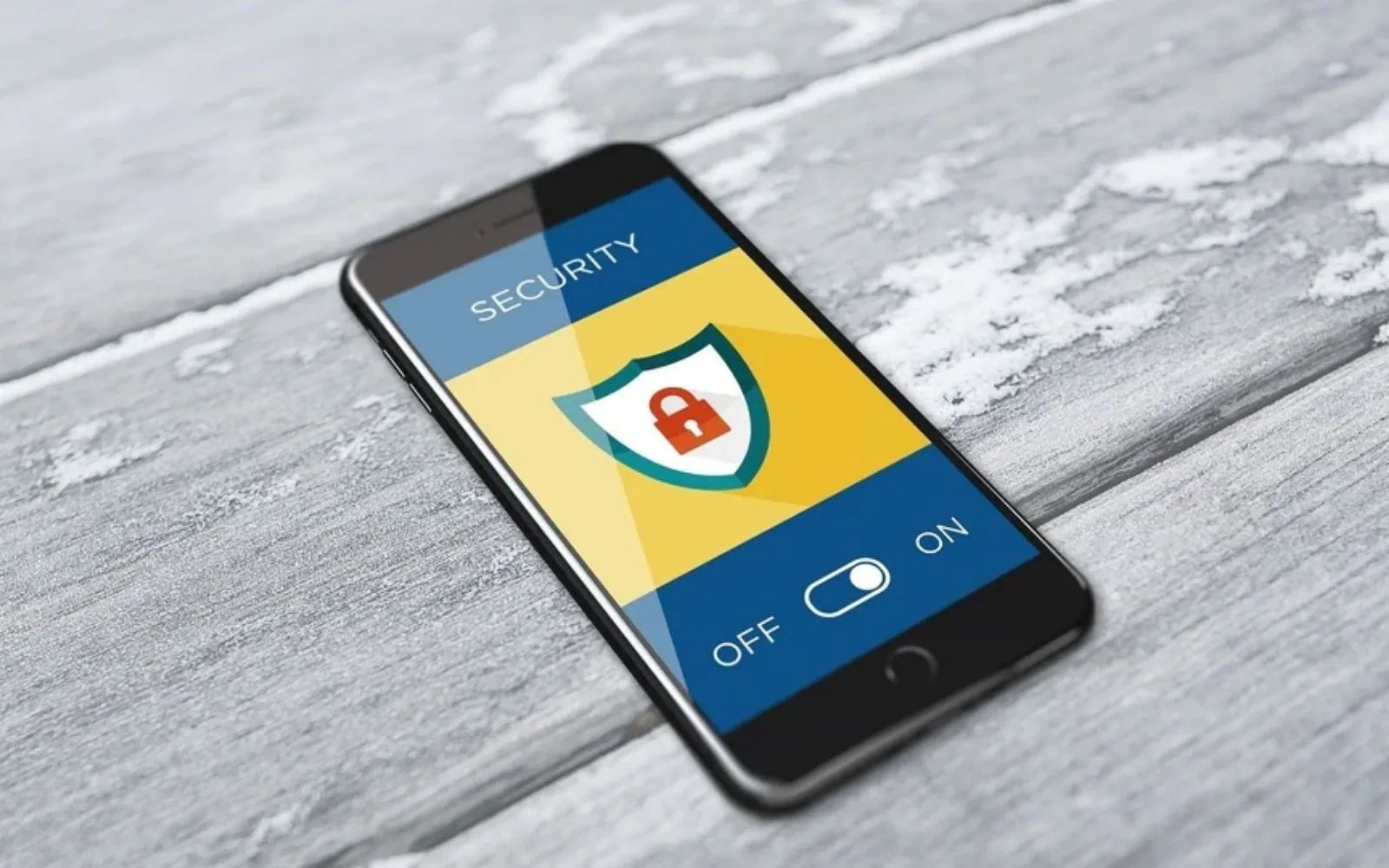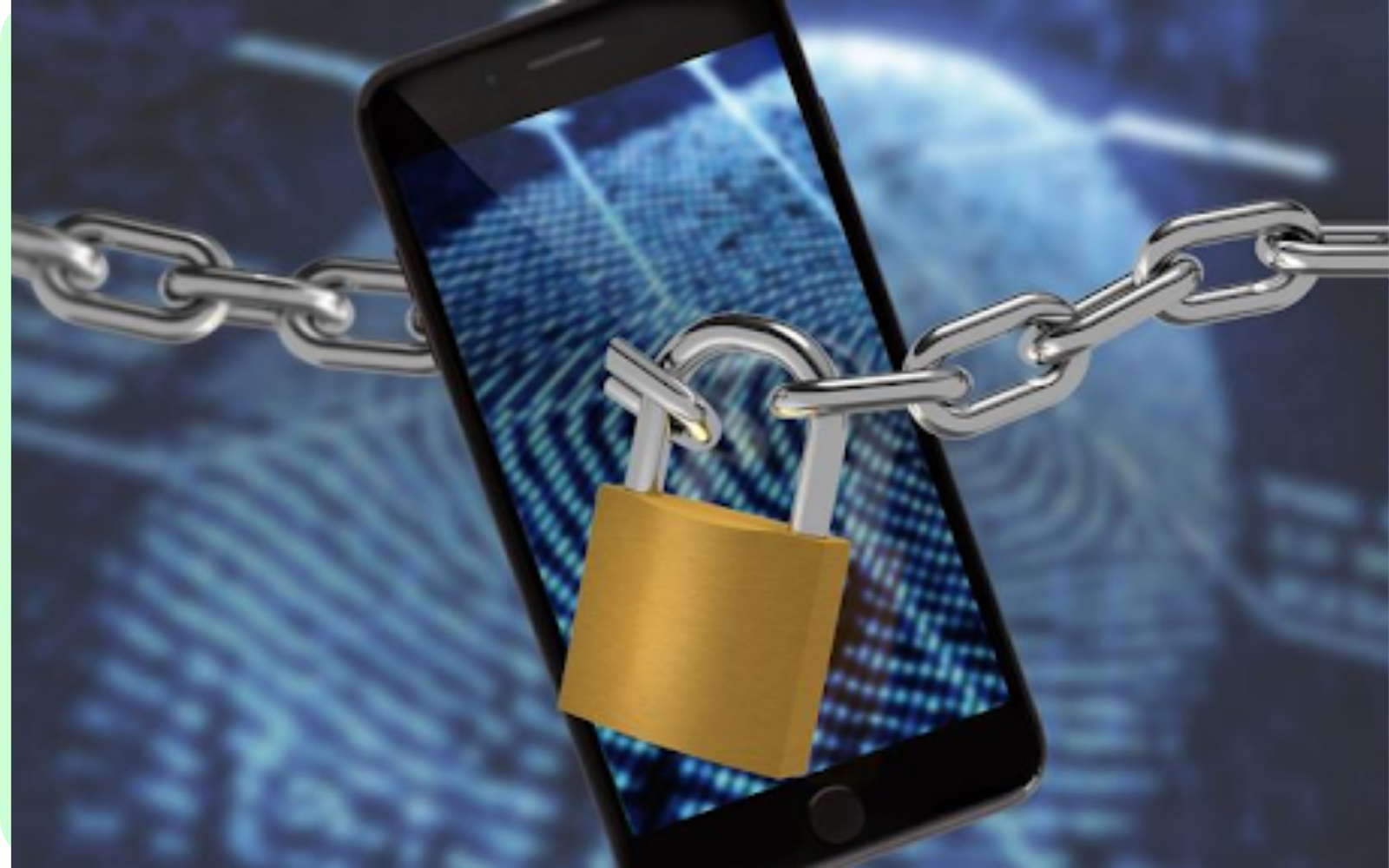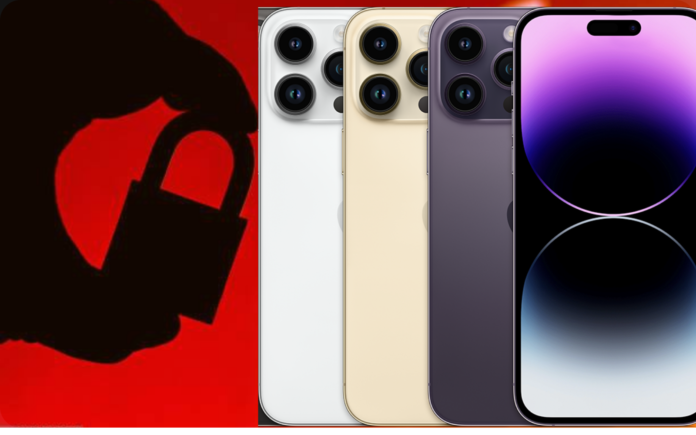iPhones Security has become an integral part of our lives, serving as more than just a device to make calls and send messages.
With the increasing amount of sensitive information stored on our iPhones, it’s more important now than ever to ensure their security.
However, with the rise of cyber attacks, it’s become increasingly necessary to understand how they work and what measures can be taken to protect our data. One such threat is the Detective Virus, which can give hackers access to your private information.
In this post, we will explore the world of iPhone security and help you understand the measures that can be taken to protect your data from this virus.
From setting strong passwords to configuring two-factor authentication, read on to learn how to keep your iPhone secure and protect your personal data.
Introduction: The importance of iPhone security
In today’s digital age, where our smartphones have become an integral part of our daily lives, ensuring the security of our personal information has never been more crucial. Among the various smartphones available in the market, the iPhone stands out as a symbol of innovation and technological prowess. However, even the most advanced devices are not immune to threats.
This is why understanding iPhone security is of paramount importance. Our iPhones have become repositories of sensitive data, ranging from personal photos and videos to banking information and emails. With so much at stake, it is imperative to comprehend the significance of iPhone security and take necessary precautions to protect ourselves from potential cyber threats. One key aspect of iPhone security is safeguarding our privacy.
With features like Face ID and Touch ID, Apple has provided users with convenient ways to unlock their devices while ensuring their personal information remains secure. Additionally, advanced encryption techniques employed by Apple ensure that our data stays protected, making it significantly harder for unauthorized individuals to access our information. Another crucial aspect of iPhone security is shielding ourselves from malicious software or viruses.
While Apple’s stringent app review process plays a vital role in reducing the risk of malware, it is essential to remain vigilant and exercise caution while downloading apps from third-party sources. Regularly updating our iPhone’s operating system and apps is also crucial, as these updates often contain security patches that address vulnerabilities and protect us from potential threats. Furthermore, securing our iPhones against physical theft or loss is equally important. Enabling features such as Find My iPhone and activating a strong passcode or password can help prevent unauthorized access to our devices, ensuring that our personal information remains safe even in the event of theft or misplacement.
In conclusion, understanding the importance of iPhone security is the first step towards safeguarding our personal information in an increasingly interconnected world. By familiarizing ourselves with the various security features offered by Apple and adopting best practices, we can ensure that our iPhones Security remain protected from potential cyber threats, providing us with peace of mind and a secure digital experience.
Common misconceptions about iPhone security
When it comes to iPhone security, there are several common misconceptions that can leave users vulnerable to potential threats. Understanding and debunking these misconceptions is crucial for safeguarding your personal information and maintaining a secure digital environment.
One common misconception is that iPhones are immune to malware and viruses. While it is true that iOS has built-in security features that make it more difficult for malicious software to penetrate the system, it is not entirely invulnerable. Hackers are constantly evolving their techniques, and new vulnerabilities can be discovered. Therefore, it is crucial to remain vigilant and stay updated with the latest security updates and patches provided by Apple.
Another misconception is that using App Store exclusively guarantees the safety of downloaded apps. While the App Store maintains strict guidelines and review processes, it is not entirely foolproof. Occasionally, malicious apps may slip through the cracks and make their way onto the platform. It is important to exercise caution when downloading apps, even from trusted sources, and thoroughly review permissions and user reviews before installation.
Some users also believe that having a strong passcode or Touch ID/Face ID authentication is sufficient to protect their iPhone. While these security measures are indeed crucial, it is not the sole aspect of iPhone security. It is equally important to enable two-factor authentication, regularly update your device’s software, and use strong, unique passwords for all accounts linked to your iPhone.
Lastly, there is a misconception that jailbreaking an iPhone provides more control and customization options without compromising security. However, jailbreaking removes the built-in security measures put in place by Apple, leaving the device more vulnerable to malware, data breaches, and unauthorized access. It is strongly recommended to avoid jailbreaking your iPhone to maintain a secure and stable operating system.
By understanding and dispelling these common misconceptions, iPhone users can take proactive steps towards enhancing their device’s security. Prioritizing regular updates, being cautious with app downloads, and implementing strong authentication measures will contribute to a safer and more secure iPhone experience.
Understanding the Detective Virus: What is it and how does it work?
The Detective Virus is a malicious software that specifically targets iPhone, aiming to compromise the device’s security and gain unauthorized access to sensitive information. It operates stealthily, often going unnoticed by users until the damage is already done.
This virus is designed to exploit vulnerabilities in the iOS operating system, taking advantage of security loopholes to infiltrate the device. It can be introduced through various means, such as downloading infected apps, visiting compromised websites, or clicking on malicious links.
Once the Detective Virus successfully infiltrates the iPhone, it begins its covert operations. It may start by collecting personal data, such as login credentials, banking information, or even private messages. This information can then be used for identity theft, financial fraud, or other nefarious purposes.
The virus also has the ability to monitor user activities, including keystrokes, browsing history, and GPS location. This allows the attackers to track the user’s every move and gather even more valuable data.
One of the most concerning aspects of the Detective Virus is its ability to evade detection by traditional antivirus software. It often employs sophisticated techniques to remain hidden, making it extremely challenging for users to identify its presence on their iPhone.
To protect against the Detective Virus, it is crucial to stay vigilant and take proactive measures. Keeping your iPhone’s software up to date is essential, as these updates often include security patches that address known vulnerabilities. Additionally, only download apps from trusted sources, and be cautious when clicking on links or visiting unfamiliar websites.
Understanding the inner workings of the Detective Virus is the first step in safeguarding your iPhone and personal information. By staying informed and implementing strong security practices, you can minimize the risk of falling victim to this insidious threat.
How the Detective Virus infiltrates iPhones
The Detective Virus has been causing concern among iPhone users due to its ability to infiltrate these devices. Understanding how this virus manages to breach iPhone security is crucial in protecting your device and personal information.
The Detective Virus typically enters iPhones through various means, including malicious websites, infected email attachments, or by exploiting vulnerabilities in outdated software. Once it gains access, it can stealthily operate in the background, collecting sensitive data without the user’s knowledge.
One common method used by the Detective Virus is through phishing attacks. Users may receive seemingly legitimate emails or messages that prompt them to click on a link or enter their login credentials. Unbeknownst to the user, these actions provide the virus with access to their device, enabling it to monitor their activities and extract personal information.
Another tactic employed by the Detective Virus is through the installation of malicious apps. These apps often masquerade as legitimate tools or games, luring users into downloading them. Once installed, they can exploit vulnerabilities in the iPhone’s operating system, granting the virus access to sensitive data stored on the device.
It’s important to note that the Detective Virus mainly targets iPhone that are not regularly updated with the latest software patches. Apple frequently releases security updates to address vulnerabilities and protect against known threats. Failing to update your iPhone leaves it more vulnerable to attacks like the Detective Virus.
To safeguard your iPhones from this insidious virus, it is crucial to exercise caution when interacting with unfamiliar links, emails, or attachments. Avoid downloading apps from untrusted sources and always ensure your device is updated with the latest software updates.
By understanding the methods used by the Detective Virus to infiltrate iPhones, you can take proactive steps to protect your device and personal information from potential threats. Stay vigilant, keep your software up to date, and be mindful of the links and attachments you interact with to maintain a secure iPhone experience.
Signs that your iPhone may be infected with the Detective Virus
It’s essential to be aware of the signs that your iPhones Securitymay be infected with the notorious Detective Virus. This sophisticated malware has been causing havoc among iPhone users, compromising their security and sensitive data. By recognizing these signs early on, you can take swift action to protect yourself and prevent further damage.
One of the most noticeable signs of a Detective Virus infection is a sudden decrease in your iPhone’s performance. If your once snappy and responsive device becomes sluggish, freezes frequently, or experiences random crashes, it could be a red flag. This malware often runs in the background, consuming valuable system resources, and causing your iPhone to operate at a suboptimal level.
Another telltale sign is the appearance of unfamiliar and suspicious apps on your iPhone. The Detective Virus is known to disguise itself as legitimate applications, fooling users into downloading them. Pay close attention to any new apps that you did not intentionally install or apps that suddenly behave strangely, such as crashing or displaying excessive ads.
Unexplained data usage can also be an indication of a Detective Virus infection. If you notice a significant increase in your data usage without any apparent reason, it could be a result of the malware secretly transmitting data or performing malicious activities in the background.
Furthermore, be wary of unusual battery drain. While it’s normal for your iPhone’s battery to deplete over time, an infected device may experience unusually rapid battery drain, even when you’re not actively using it. The Detective Virus works tirelessly in the background, consuming power and causing your battery to drain faster than usual.
Lastly, if you encounter frequent pop-up ads, redirects to suspicious websites, or unusual behavior while browsing the internet on your iPhone, it’s a strong indication that your device may be infected. The Detective Virus often manipulates web browsers and injects unwanted advertisements or redirects users to malicious websites designed to gather personal information.
If you observe any of these signs on your iPhones Security, it’s crucial to take immediate action. Consult with a reputable cybersecurity expert or use reliable antivirus software to scan and remove the Detective Virus from your device. Remember, staying vigilant and proactive about your iPhone’s security is key to protecting your personal information and ensuring a safe digital experience.
The potential risks and consequences of a Detective Virus infection

Understanding the potential risks and consequences of a Detective Virus infection is crucial in comprehending the importance of iPhone security.
A Detective Virus, also known as spyware, is a malicious software that can infiltrate your iPhone without your knowledge or consent. Once infected, this virus can gather sensitive information, monitor your activities, and compromise your privacy.
One of the significant risks of a Detective Virus infection is identity theft. These viruses are designed to steal personal information such as passwords, credit card details, and social security numbers.
With access to this valuable data, cybercriminals can assume your identity, make unauthorized transactions, and wreak havoc on your financial well-being. Furthermore, a Detective Virus can also grant unauthorized access to your iPhone’s microphone and camera. This means that hackers can eavesdrop on your conversations, capture audio and video recordings, and invade your personal space.
This violation of privacy can have severe consequences, as sensitive conversations or compromising images may be used against you or shared without your consent. In addition to these risks, a Detective Virus infection can lead to the exploitation of your iPhone’s resources.
These viruses often run in the background, consuming processing power and battery life. As a result, your device may slow down, experience frequent crashes, or become unresponsive. This can severely impact your productivity and overall user experience. Moreover, infected iPhones are also susceptible to further malware infections, creating a domino effect of security breaches.
Once your device is compromised, hackers can exploit vulnerabilities to install additional malware, steal more data, or gain control over your device.
To mitigate these risks and protect your iPhones from a Detective Virus infection, it is essential to prioritize security measures.
Regularly update your iPhone’s operating system and applications to ensure you have the latest security patches. Be cautious when downloading apps or clicking on suspicious links, as they may contain malware. Consider using a reliable antivirus software specifically designed for iPhones to detect and remove any potential threats.
By understanding the potential risks and consequences of a Detective Virus infection, you can take proactive measures to safeguard your iPhone and maintain your privacy and security in the digital world.
Steps to protect your iPhones Security from the Detective Virus

Protecting your iPhones from the Detective Virus is crucial to ensure the security and privacy of your personal information. The Detective Virus is a type of malware that can infiltrate your device, compromise your data, and even gain unauthorized access to your sensitive information. To safeguard your iPhones Security from this threat, here are some steps you can take:
Keep your iPhones software updated:
Apple regularly releases software updates that include security patches and bug fixes. By keeping your device updated, you can ensure that any vulnerabilities that could be exploited by the Detective Virus are patched and resolved.
Enable two-factor authentication:

Two-factor authentication adds an extra layer of security to your iPhones Security. It requires you to provide a verification code in addition to your password when logging into your Apple ID or making purchases. This helps prevent unauthorized access to your device and accounts.
Be cautious of suspicious links and downloads:
Avoid clicking on suspicious links or downloading files from untrusted sources. The Detective Virus often spreads through malicious links or attachments in emails, text messages, or websites. Exercise caution and only download apps and files from trusted sources such as the App Store.
Install a reputable security app:
Consider installing a reliable security app from the App Store to provide additional protection against threats like the Detective Virus. These apps can scan your iPhones for malware, detect suspicious activities, and offer real-time protection against potential threats.
Regularly backup your data:
In the event that your iPhones becomes infected with the Detective Virus or any other malware, having a recent backup of your data will allow you to restore your device to a clean state. Regularly back up your iPhones using iCloud or iTunes to ensure that your important files, photos, and contacts are safe.
By following these steps, you can significantly reduce the risk of your iPhone being infected by the Detective Virus and ensure the security of your personal information. Remember, vigilance and proactive measures are key in keeping your iPhones Security and its data protected.
Best practices for iPhones security
When it comes to iPhone security, following best practices is essential to protect your device and personal information from potential threats. Here are some key practices to keep in mind:
Stay updated:
Always ensure that your iPhone’s operating system, as well as apps, are up to date. Regular updates often include security patches that address vulnerabilities and protect against new threats.
Enable strong passcodes:
Set a strong passcode or use biometric authentication like Face ID or Touch ID to secure your device. Avoid using easily guessable passcodes such as birthdates or sequential numbers.
Enable two-factor authentication (2FA):
Enable 2FA for your Apple ID and any other accounts linked to your iPhones. This adds an extra layer of security by requiring a verification code in addition to your password when logging in.
Be cautious with app downloads:
Only download apps from trusted sources like the official App Store. Be wary of installing apps from third-party websites or sources, as they may contain malware or compromise your device’s security.
Avoid suspicious links and phishing attempts:
Be cautious of clicking on unfamiliar links, especially in emails or messages from unknown sources. Phishing attempts often try to trick users into revealing sensitive information, so exercise caution and verify the authenticity of any requests before providing personal data.
Regularly backup your device:
Regularly back up your iPhone using iCloud or iTunes. In case of any security breaches or data loss, having a recent backup helps restore your device and information to a previous state.
Use a reliable security solution:
Consider using a reputable mobile security app that provides additional layers of protection against malware, phishing attempts, and other threats specifically targeting iPhone.
By following these best practices, you can significantly enhance the security of your iPhone and ensure the protection of your personal data and privacy. Stay vigilant and proactive in safeguarding your device against potential risks and enjoy a safe and secure iPhone experience.
Additional security measures to consider
While iPhones Security are known for their robust security features, it’s always a good idea to take additional measures to ensure the safety of your device and personal information. Here are some extra security measures you should consider implementing:
Two-Factor Authentication:
Enable Two-Factor Authentication (2FA) for your Apple ID to add an extra layer of security. This will require you to enter a verification code in addition to your password when logging in from a new device or browser.
Strong Passcodes:
Set a strong passcode for your iPhones Security that consists of a combination of numbers, letters, and special characters. Avoid using easily guessable passcodes like birthdays or sequential numbers. Additionally, consider using alphanumeric passcodes for enhanced security.
Biometric Authentication:
Utilize the biometric authentication features available on your iPhones Security, such as Touch ID or Face ID. These features use your unique fingerprint or facial features to unlock your device, providing a secure and convenient way to access your phone.
App Permissions:

Regularly review the permissions granted to the apps installed on your iPhones Security. Make sure to only grant necessary permissions and be cautious of apps requesting access to sensitive information or features that they don’t require.
Install Updates:
Keep your iPhones Security operating system and apps up to date. Apple regularly releases security updates to address vulnerabilities and protect against emerging threats. Installing these updates promptly enhances the security of your device.
Avoid Untrusted Sources:
Stick to downloading apps and content from the official App Store to minimize the risk of downloading malicious software. Sideloading apps from untrusted sources can expose your device to potential security risks.
Use a VPN:
Consider using a Virtual Private Network (VPN) when connecting to public Wi-Fi networks. A VPN encrypts your internet traffic, preventing potential eavesdropping and safeguarding your data from interception.
By implementing these additional security measures, you can further fortify the security of your iPhones Security and protect your sensitive information from unauthorized access or potential threats. Stay vigilant and proactive in safeguarding your device to ensure a safe and secure digital experience.
Conclusion: Taking control of your iPhone security
In conclusion, taking control of your iPhones security is crucial in today’s digital age.
- As our lives become more intertwined with technology, it is vital to understand the potential risks and vulnerabilities that exist.
- By following the tips and best practices outlined in this blog post, you can enhance the security of your iPhone and protect your personal information from unauthorized access.
- From enabling strong passcodes and biometrics to keeping your device and apps up to date, there are several measures you can take to fortify your iPhone’s defenses.
- Additionally, being mindful of the apps you download, practicing safe browsing habits, and utilizing secure Wi-Fi networks are essential in safeguarding your iPhones Security from potential threats.
- It’s important to stay vigilant and remain aware of the potential risks associated with using your iPhone. Remember, iPhone security is not a one-time task but an ongoing effort.
- Regularly review your settings, update your software, and stay informed about the latest security threats and updates provided by Apple.
- By actively taking control of your iPhone security, you can enjoy a safer and more secure digital experience.
In the end, your iPhones Security is more than just a device – it holds valuable personal and sensitive information.
By prioritizing your security and implementing the necessary precautions, you can ensure that your iPhone remains a trusted companion, keeping your data secure and your digital life protected.
——————————





